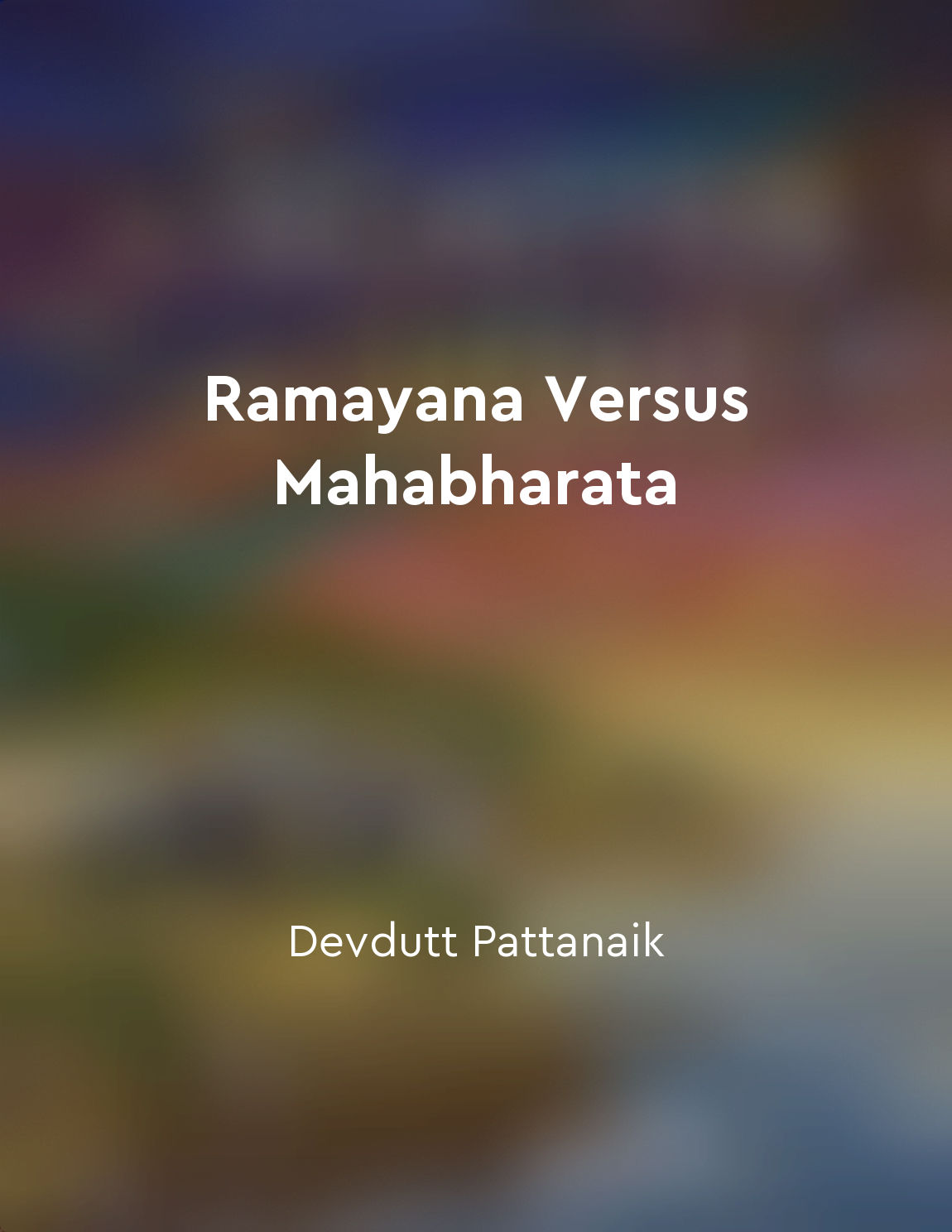Bhishma's vow from "summary" of Mahabharat Ki Kahaniyan by Harish Sharma
In the epic Mahabharat, the character of Bhishma is known for his unwavering commitment to his vow. Bhishma, also known as Devavrata, took a vow of celibacy and lifelong service to the throne of Hastinapur. This vow was made in order to ensure the happiness and well-being of his father, King Shantanu, and to protect the lineage of the Kuru dynasty. Bhishma's vow was a symbol of his selflessness, sacrifice, and dedication to duty. Despite facing numerous challenges and temptations throughout his life, Bhishma remained steadfast in his commitment to his vow. He chose to remain celibate and unmarried, even though it meant giving up his own personal happiness. This selfless act earned him the respect and admiration of all who knew him. Bhishma's vow also had far-reaching consequences for the events that unfolded in the Mahabharat. His decision to remain celibate meant that he would never have an heir of his own, leading to a succession crisis in the Kuru dynasty. This ultimately played a pivotal role in the great war of Kurukshetra, as Bhishma's absence of a direct heir became a source of conflict and division among the royal family. Throughout the epic, Bhishma's vow serves as a central theme, highlighting the importance of duty, honor, and sacrifice. His unwavering commitment to his vow serves as a moral compass for the other characters in the story, guiding their actions and decisions. Bhishma's vow is a testament to the power of selflessness and the enduring legacy of one man's unwavering dedication to his principles.Similar Posts
Hanuman plays a crucial role in this battle
In the fierce battle that ensued, Hanuman emerged as a valiant warrior, displaying unmatched strength and courage on the battle...
Exile of Pandavas
After losing in a game of dice against the Kauravas, the Pandavas were forced to go into exile for twelve years. Additionally, ...
Rama's victory over evil
The epic tale of Ramayana revolves around the triumph of good over evil. Rama, the virtuous prince, is the central figure in th...

The struggle for power
The struggle for power is a relentless force that drives men to great lengths in their pursuit of dominance. It is a battle tha...
Geeta emphasizes the importance of selfdiscipline and self-control
The concept of self-discipline and self-control is a central theme in the teachings of the Bhagavad Gita. The text emphasizes t...

Ramayana emphasizes righteousness, Mahabharata explores complexity
In the Ramayana, righteousness is the primary focus of the narrative. The story revolves around the character of Rama, who is p...
